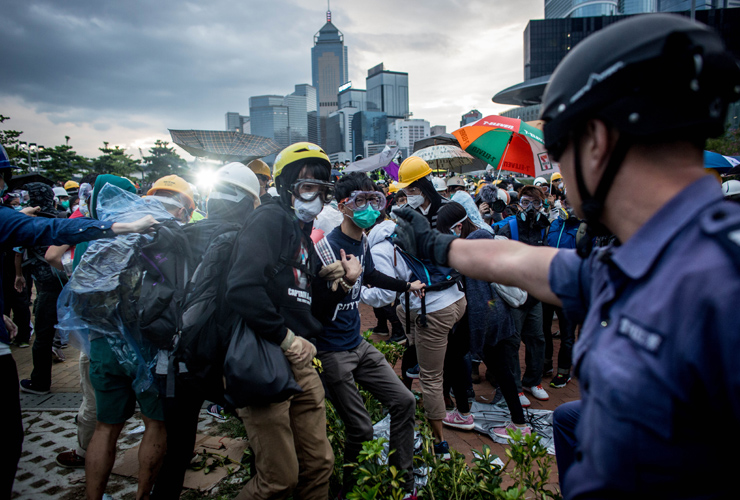Protests cause Alibaba to postpone Hong Kong IPO
The $15 billion listing has been planned for months, but the e-commerce giant's ties to Beijing have led to a delay


A free daily email with the biggest news stories of the day – and the best features from TheWeek.com
You are now subscribed
Your newsletter sign-up was successful
The 11-week-old and ever-escalating political protests in Hong Kong have caused the Chinese online retail company Alibaba to delay its highly anticipated $15 billion listing in the city’s stock exchange, confidential sources have revealed to Reuters.
Citing two sources who the publication claimed were not authorised to speak to the media, Reuters reported that the listing will not take place this August, as was expected, because of the turmoil currently engulfing the semi-autonomous city.
Hong Kong’s demonstrations started in reaction to an extradition bill backed by Beijing. The bill has been shelved but not completely abandoned, and the tension’s causes have morphed to incorporate a wide range of political and economic grievances. Chinese forces have massed on the border, but marches continue to grow in size, frequency, and vehemence.
The Week
Escape your echo chamber. Get the facts behind the news, plus analysis from multiple perspectives.

Sign up for The Week's Free Newsletters
From our morning news briefing to a weekly Good News Newsletter, get the best of The Week delivered directly to your inbox.
From our morning news briefing to a weekly Good News Newsletter, get the best of The Week delivered directly to your inbox.
Alibaba’s Wall Street IPO in September 2014 remains, at $25 billion, the largest in history.
As CNN explains, New York was the destination partly because “Hong Kong regulators at the time refused to allow the online retail giant to list with a corporate structure that would give Alibaba founder Jack Ma and other managers the control they wanted. Hong Kong changed the rules last year, allowing companies with large market values to have different voting rights for individuals that have crucial roles.”
Authorities and investors in Hong Kong are keen to see the listing happen, but the unrest has put that on hold for now. “It would be very unwise to launch the deal now or anytime soon,” a source told Reuters. “It would certainly annoy Beijing by offering Hong Kong such a big gift given what’s going on in the city.”
The second source told the news agency that “Alibaba views the Hong Kong deal as a way to ‘diversify its access to capital markets’, but not as core to its business. Alibaba ‘does not see the postponement as a blow,’ the person added.”
A free daily email with the biggest news stories of the day – and the best features from TheWeek.com
“The IPO process was initially set to begin in August, and a new time hasn't been decided on yet,” Business Insider says. “But, if political tensions ease and market conditions improve, Alibaba could reportedly pursue a deal as early as October.”
The New York Times thinks that, despite the delay, it is only a matter of time before the company lists in Hong Kong. “For all of Hong Kong’s problems, Alibaba has a number of reasons for sticking with its plan to list its shares there. A Hong Kong listing could play well with China’s leaders, who want to build the country’s stock markets so that the markets shed a reputation for corruption and insider trading and become a reliable way for companies to raise money.
“In the longer term, the Trump administration could take a tougher stance toward Chinese companies raising money in the United States, which could make Alibaba’s New York listing politically complicated.”
William Gritten is a London-born, New York-based strategist and writer focusing on politics and international affairs.
